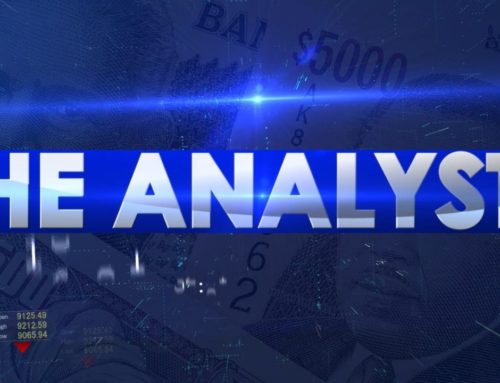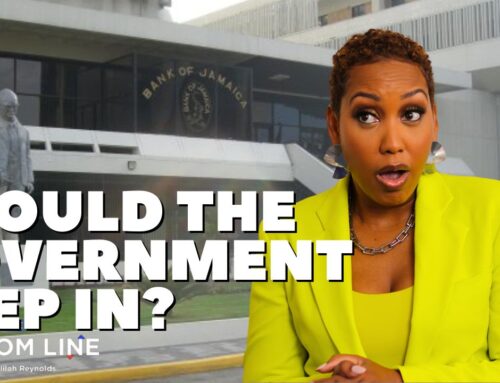
Bitcoin ETFs to make it easier for Jamaicans to cash in on crypto-market
Jamaican investors who were finding it difficult to tap into the ever-growing cryptocurrency market may now have an easier way in with the launch of the first Bitcoin Exchange Traded Fund (ETF).
Speaking on Taking Stock with Kalilah Reynolds, Assistant Professor at ESE Business School, in Chile, Hugo Benedetti, explained that ETFs work similar to a mutual fund. He said they are accompanied by a basket of securities, in this case “futures” being traded as blocks on the Chicago Mercantile Exchange.

Assistant Professor at ESE Business School, in Chile, Hugo Benedetti
Futures are financial contracts obligating a buyer or seller to buy or sell an asset. They are usually influenced by demand.
Futures allow investors to speculate on the direction of that asset and at the expiration there has to be some resolution. This could see the future either being transferred or the contract cancelled or bought out.
The ETF, launched last week, sent the value of Bitcoin to a record US$66,000 above the previous all-time high of just under US$65,000 according to CoinDesk.
Bitcoin had fallen below US$30,000 in the summer.
According to Assistant Professor in the Department of Economics and Business at Lehman College, Dr. Sean Stein Smith, the onboarding of that Bitcoin ETF has opened the door for a wide pool of external investors.
Dr. Sean Stein Smith, who also appeared on Taking Stock virtually from New York, said the ETF has made it easy to invest in the crypto market as it takes into account insurance and institutional expertise that weren’t really there before.
He explained that anybody anywhere who has access to any account brokerage firm can now trade in bitcoin. In Jamaica’s context, a local brokerage would simply need to initiate the process of taking it on board in order for their clients to benefit.

Assistant Professor in the Department of Economics and Business at Lehman College, Dr. Sean Stein Smith
“Having to go through all that extra paperwork and complying had actually capped the ultimate number of institutions and individuals who were interested and able to purchase bitcoin whereas now having an ETF means anybody who has a brokerage account with any equities, funds, bonds anywhere in the world now has that opportunity to get into crypto,” he said.
The approval of the Bitcoin ETF represented a major shift for the Securities Exchange Commission (SEC), which had previously been reluctant to approve it due to the intense volatility, as well as broader concerns about the unregulated nature of cryptocurrencies.
However, Chairman of the SEC, Gary Gensler, has reportedly stated that the commission would be more comfortable with “future-based” ETFs because they trade on a regulated market.
Dr. Stein Smith reasoned that the turn could be as a result of the appreciation that cryptocurrencies will be playing a huge part in the payments landscape in the future.
He said the overall tone with respect to cryptocurrencies in the United States has been improving since late 2020 as regulators move to understand and get a handle around Bitcoin and other assets in the sector.
“Trying to incorporate blockchain and other aspects of cryptocurrency is going to ultimately be how transactions are done going forward and in order to keep payment rails, markets and our financial sector at the front trying to lead the conversation on issues, policy wise, and to develop better products, it’s important for policy makers to get that process started,” he said.
Dr. Stein Smith however cautioned that while the new Bitcoin ETF has evolved the crypto space, it “isn’t a perfect step” either.
He said the fee structure will be more costly than other funds currently but reasoned that prices will tumble as more such ETFs are launched. He disclosed that at least one more was set to make its debut this week.
“As we get more of these products out there, more of these entrants are going to help tamp down costs and other fees,” he said.
Meanwhile Dr. Stein Smith said he doesn’t see cryptocurrencies being a threat to fiat currencies including Central Bank Digital Currencies (CBDCs).
He described the crypto market as simply the next stage in how payments will be conducted and how currencies will have to operate. In his view, everything has to be upgraded over time including the currency world to keep pace with everything else that’s also being upgraded over time.
“The whole future of payments was already going virtually already anyways…the IT side of this works. Now it’s just a matter of folding the assets into tax, compliance, audit and to actually conduct payments and to harness some for trading purposes,” he reasoned.
The sentiment was also echoed by the ESE Business School Assistant Professor who noted that having witnessed the potential of the crypto technology, it would be unwise to reverse and dismiss it.
-END-
Ask The Analysts
The Cast David Rose Business Writer, Observer Leovaughni Dillion Investment Research & Sovereign Risk Analyst at JMMB Group
R.A. Williams to list on JSE
The Cast Audley Reid CEO R.A. Williams Distributors Julian Morrison Founder, Wealth Watch JA










Leave A Comment